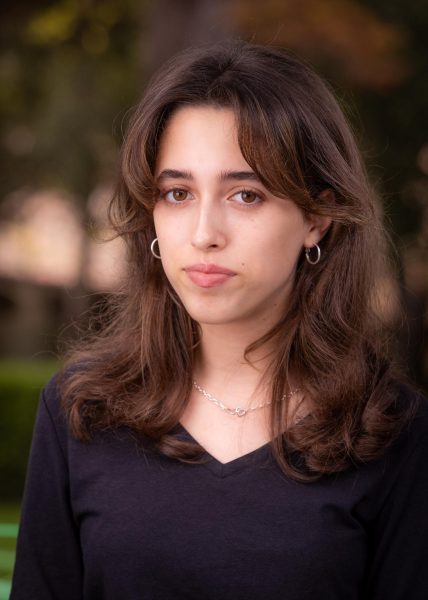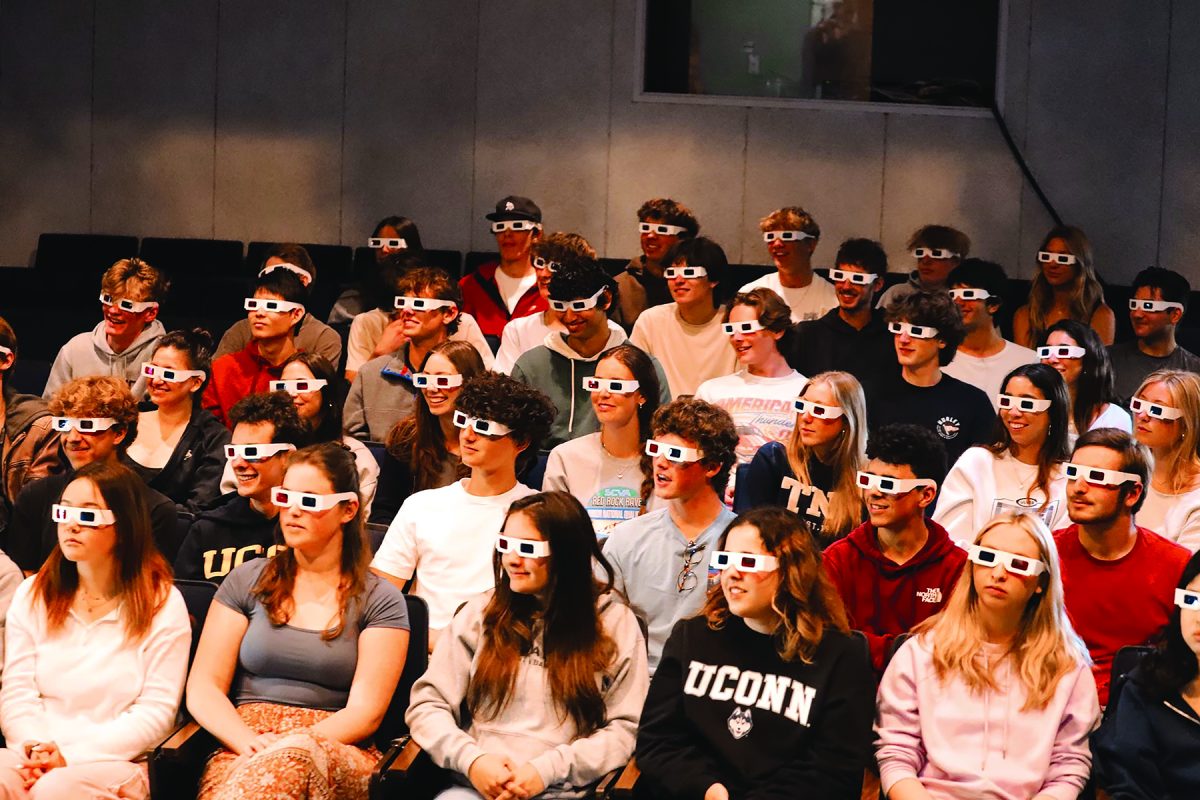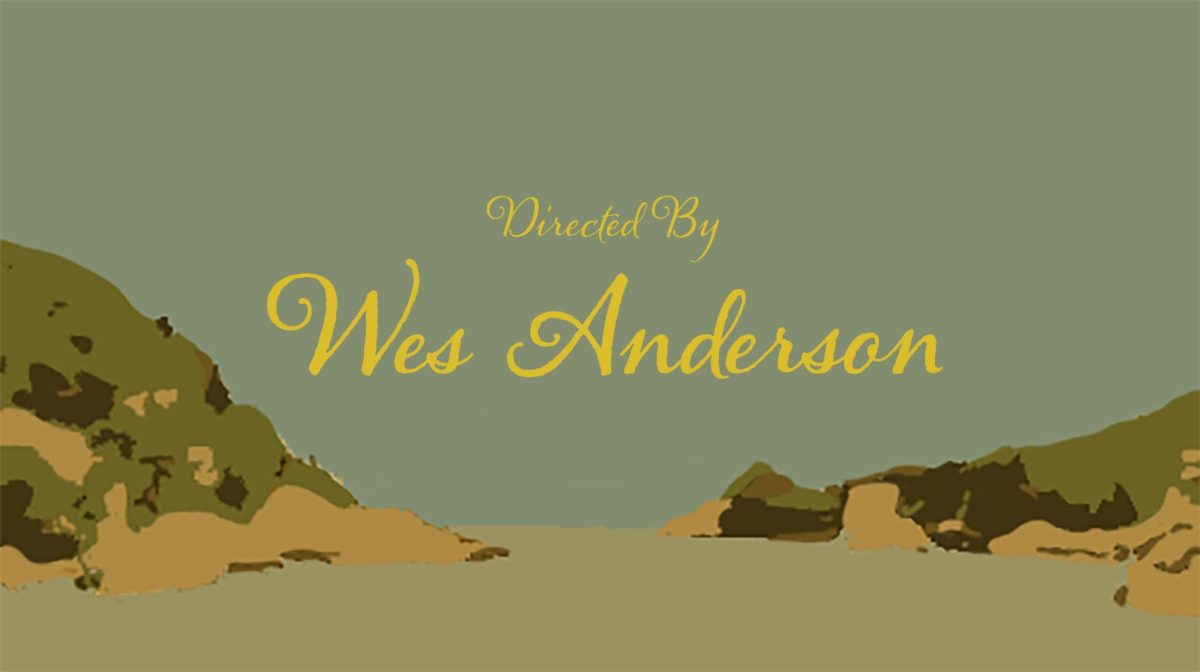Unlike many other murder-mystery novels, Tartt’s 1992 novel introduces the readers to immediate conflict in the opening line: “The snow in the mountains was melting and Bunny had been dead for several weeks before we came to understand the gravity of our situation.”
Throwing the readers straight into the suggested crime of the murder mystery, Tartt signifies the deeper levels of the novel that she will introduce to the readers later on. Tartt creates a philosophical, dark academia masterpiece involving internal struggles and remorse following the murder introduced on the first page.
The author’s story is set in 1980s rural Vermont in a fictional school, Hampden College: inspired by Bennington College, where Tartt herself attended. To high school students who yearn for ivy-covered old architectural colleges, the aesthetic of this book emanates that of a dark academia Pinterest board, with classrooms filled with worldly scholars who quote Aristotle and Sappho over endless cups of coffee.
Books under the category of “dark academia” typically evoke a mystery and complexity, taking place within the confinement of an esteemed academic institution, littered with darkened libraries, Gothic structures, and young intellectuals. This very description outlines the life of the group of eccentric students that the narrator, Richard Papen, becomes engrossed in.
“As different as they all were they shared a certain coolness, a cruel, mannered charm which was not modern in the least but had a strange cold breath of the ancient world,” Tartt said. “They were magnificent creatures.”
The characters described through Richard’s perspective are a group of 5 wealthy students who immediately attract local California Richard, as they differentiate from the average party-obsessed college clique. Their version of “Greek life” sways Richard to join their class, taught by the charismatic Greek/classic professor, Julian Morrow.
Richard later discovers that the quirky traits of his new-found friend group, such as having full conversions in old Greek or discussing centuries-long questions that stumped the oldest of philosophers, are more cult-like than the average friend group. He uncovers the truth of his friends’ obsession with their Greek class, and with their teacher, whom they worship like a God.
Exploring sex, relationships, and morals through classic literature, the group of students grows an obsession with a particular Greek tradition that leads them to the conflict that consumes their lives. Richard’s fanatic longing for a more “romantic” life, one of the sophistication and seemingly endless inheritances that his classmates possess, blinds him to the fabrication that they use to cover up their real activities. Completely enthralled by their lifestyles, Richard pretends to have a deeper understanding of their interests and creates a fake glamorous past for himself to fit into their clique. This reveals to the reader of his inconsistent truths and continuous, pointless lies, deeming him an unreliable narrator and making it impossible for the readers to know what is true and what is simply his perspective.
Tartt, author of other well-commended works such as “The Little Friend” and “The Goldfinch,” was inspired to write this book through her life-long pursuit of being a great poet. Majoring in classics, Tartt’s setting and characters were inspired not only by the college itself but also by her own eccentric teacher and quirky group of college friends. Her novel is woven with Greek mythology and philosophical ideas that sparked her curiosity when she was a college student herself. These aspects are seen in her description, thick with ideas of existential ideals almost lost with the ancient worlds.
A somewhat college coming-of-age story, the use of college students in a book dedicated to mythology and philosophy opens an appreciation of the deep internal thoughts and longings that the youth also experience. Tartt explores the transformative power of academia on the youth through the changes that Richard undergoes in his new environment. “Younger characters tend to be more malleable than older ones,” Tartt said, “because they are less determined by circumstance and have more space to grow.”
Translated into 24 languages and sold over 5 million copies, “The Secret History” has been deemed one of the most celebrated novels of the dark academia world. Beyond the morbid and grotesque academic setting, “The Secret History” represents the true ideals of dark academia: an ode to intellectual and romantic pursuits that are acted upon in the way that spiritual and religious ones would.
This intellectual novel is perfect for readers who are looking to find a combination of mythological references, transcendentalist ideals, human constructs of morality, and detailed Hellenistic practices.
Tartt’s purposefully informative and elaborate wordplay is intentional, attempting to communicate with her readers more personally than most authors attempt to achieve. “Writing a novel doesn’t feel like an address to an audience,” said Tartt, “so much as a direct interaction with one other person.”
Concluding with an untrustworthy narrator and many unresolved questions, this novel leaves a lot up to the readers’ imagination and has them questioning their existences’ in the same way that the characters do. One may close this book with the discovery of new ways of thought and life.
Dedicated to intellectuals, this novel is truly the “it” thriller for the average thinking person.
The Ultimate Read for Intellectuals
Consider reading Donna Tartt’s “The Secret History” to explore mythological references, murder and charismatic college students.
November 6, 2023
Donate to The Fourth Estate
$50
$500
Contributed
Our Goal
Your donation will support the student journalists of Laguna Blanca School. Your contribution will allow us to purchase equipment and cover our annual website hosting costs.
About the Contributor

Cierra Nervo, Co Opinion Editor
Senior Cierra Nervo joined the Fourth Estate staff in the 2020-2021 school year. She is the Co-Opinion editor, and focuses her writing on recent trends, film, and environmental issues. She enjoys all aspects of the humanities, connecting other class interests to her journalist work. Outside of school, she writes for the Hope Ranch Stroll Magazine.











